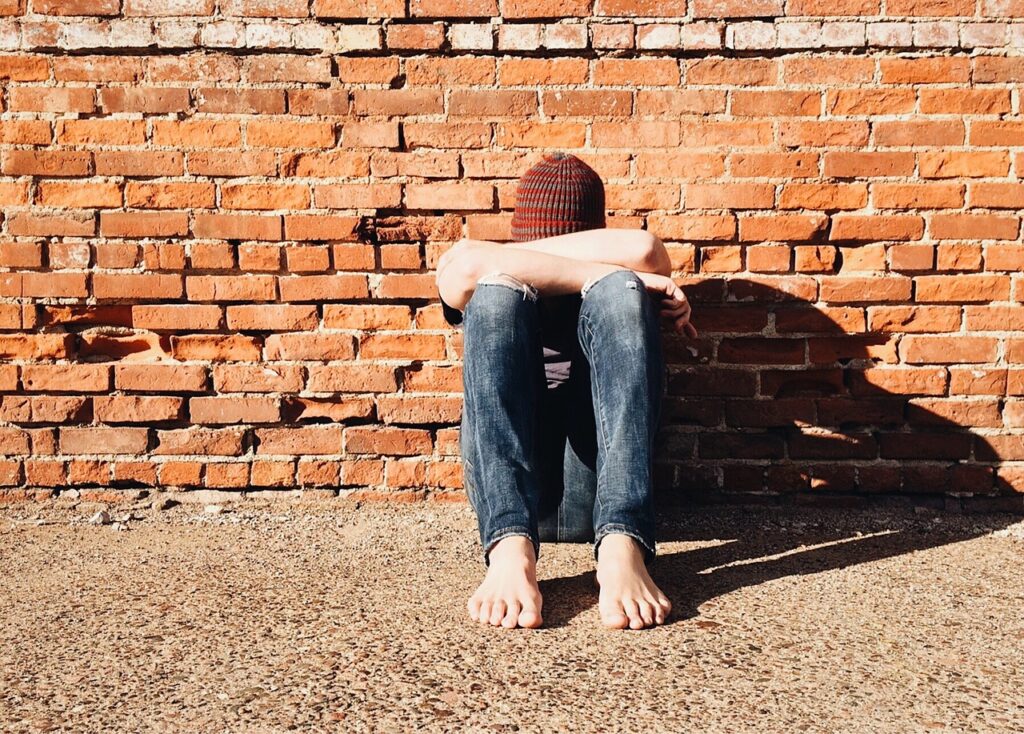It’s normal for most people to feel sad once in a while, particularly in response to a loss or disappointment. Sadness like this typically doesn’t last long and usually goes away on its own. On the other hand, when a person is depressed, the sad feelings don’t go away. They linger for long periods of time, and they may lead to an overall feeling of hopelessness. If you suspect that a loved one or someone you know is depressed, here’s what you can do.
- Check on them. This might begin with asking if they’re okay followed by open-ended questions that elicit a response. It could be as simple as “You’re not acting like yourself. Is everything okay?” If you can get them to talk, be sure to listen. This is one of the best ways to show that you care. If they’re hesitant to communicate with you, suggest doing an activity together, such as taking a drive or grabbing a quick meal at a local restaurant. This could ease the pressure and encourage them to open up.
- Listen carefully. You can assure the person that you’re really listening by letting them talk and refraining from judgment. Occasionally repeat what they say to show that you’re following along. Above all, remain calm and don’t panic, even if you don’t like what you hear or it scares you.
- Let them know you care. While you never want todiminish another person’s problems, you do want to remain non-judgmental and express your concern in a non-confrontational way. You may want to ask if there’s anything you can do to help the person through this tough time. Or you could simply say, “I’m worried about you, but I don’t know what to do.” And then suggest contacting a mental health professional.
- Provide positive reinforcement. People who are depressed often blame themselves for what’s going on. They tend to judge themselves harshly. You can help alleviate some of this by reminding them about their better qualities and how much they mean to you and others.
- Encourage the person to seek professional treatment. Depression is a mental illness, and it needs to be treated as such. Although many patients think they can solve the problem without treatment, that’s rarely the case. The good news is that most people get better with treatment, so you can remind them to take their medicine and attend all of their appointments with a mental health professional.
- Know the warning signs of suicide. Although there are many signs, actually talking about suicide is one of the more obvious. A person who is depressed might come right out and say they are going to kill themselves. Or it could be more subtle, such as wishing they had never been born. You might see something that alerts you to a suicide plan, such as a gun purchase or a large supply of pills. But most likely you will notice that they are increasingly withdrawn from society, spending more time alone and focused on their own thoughts of hopelessness.
- Seek immediate help if there is an emergency. Call 911 if you have reason to believe someone might commit suicide. You can also contact the suicide hotline for advice or for help finding resources. To reach the 988 Suicide & Crisis Lifeline, call or text 988. It’s available 24/7 wherever you are in the U.S.
It can be unsettling to see a friend or loved one suffer from depression. And while you may not be able to solve the problem for them, you can provide support and guidance along the way. Even with treatment, depression does not go away overnight, so be patient, continue to provide support, and check in with them regularly.
Image by WOKANDAPIX from Pixabay
Dr. David Lowenstein is a Columbus, Ohio-based psychologist with more than 35 years of experience. He conducts individual, family, and group therapy sessions in his German Village office and also via telehealth. Dr. Lowenstein is also available for expert forensic testimony, and for educational workshops and presentations. He is frequently called upon as an expert source for print, radio, and broadcast media. Contact Dr. Lowenstein at Lowenstein & Associates, 691 South Fifth Street, Columbus, Ohio, 43206, or call 614.443.6155 or 614.444.0432.


